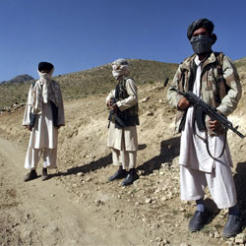The £200m increase in aid to Afghanistan demonstrates the futility of ring-fencing funding and disrespects the entire history of governmental international aid, says Celina Ribeiro.
There’s no such thing as ring-fenced funding.
It's something we all probably suspected anyway, but for the lucky charities working in ring-fenced international development the reality behind the rhetoric has become quickly clear.
The scenario is all too Yes Minister. You get into government with a promise to protect an area of funding. You quickly realise this is neither really possible, nor political. No matter. Change the definition of that area of funding. No one will notice.
In an environment where cuts are being made with the force of guillotines, I can only imagine the pressure International Development Secretary Andrew Mitchell has been under with his smugly ring-fenced aid budgets. And he has bowed to pressure.
It’s still ring-fenced, mind, but it’s just that it is not aid as we have ever known it. Or as anyone with any sense of social justice expects it.
This week Mitchell is to announce an extra £200m in aid to Afghanistan over the next four years. In the magical world of pre-released speeches, the press can foretell that Mitchell will say, “Nowhere is the case clearer of why well-spent aid overseas is in our national interest than in Afghanistan.”
The Afghan people are exceptionally worthy of aid and assistance from the British government. But this is not aid for aid’s sake. Actually, this is not aid at all. There is nothing charitable, philanthropic or even good-global-citizen about this. This is the British national security agenda.
I’m going to be old school here. International aid should be accountable, should be effective, should not be co-opted by corrupt governments. But the essence of international aid is that wealthy nations have a moral obligation to share their wealth with the poorest people on the planet, in recognition of their own good fortune and in the name of the common humanity and rights of every single individual to expect a healthy and safe life. Not because we’re concerned about the security risk those people may pose to us.
Charities working in this field have a hard task ahead, both in campaigning for government intervention in regions and crises which don't have an impact on national security and also in securing funding for projects and programmes in these less sensitive areas. When charities such as Christian Aid are campaigning for government assistance in dealing with the crisis in Africa, it is a worry that a government consideration of responding to the crisis and assisting charities on the ground may include the question 'What's in it for us?'.
Cameron had first floated this politicisation of aid spending in January, and sadly it seems Oxfam’s concern at the time has proved well-founded.
This strategy is not only warped, it sets a dangerous precedent. The government was noble in promising to ring-fence international aid, but facing internal and wider criticism of this in the face of swingeing cuts pretty much everywhere else, they have been cowardly. They have picked up those fence posts and carted them around a whole new area that was never part of that first field.
Britain has an international law obligation as an occupying power to provide security, infrastructure and the like to the country it is occupying. To do this and call it aid is abhorrent and worrying for those who receive funding from this now highly-politicised department.









